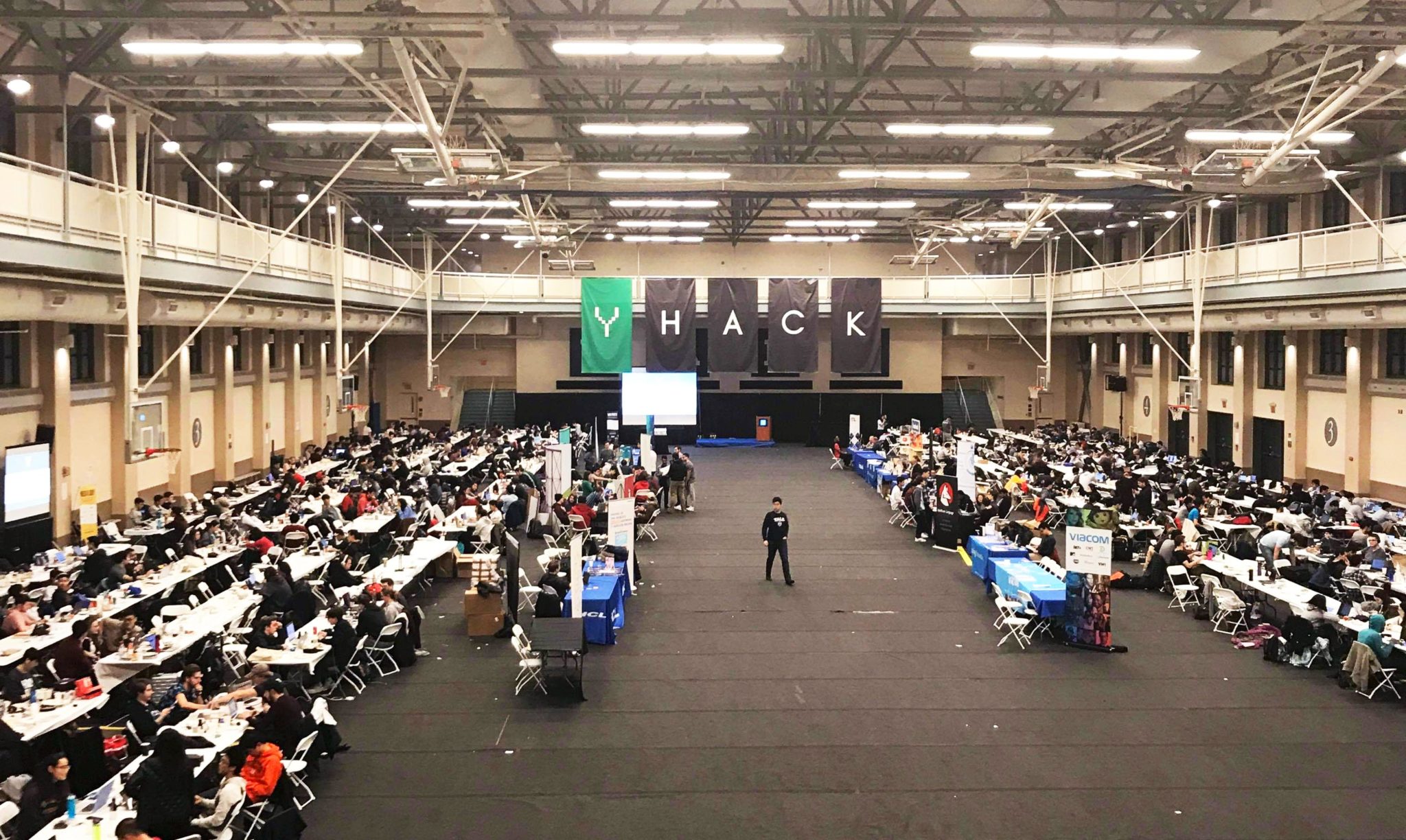
Courtesy of Karen Jiang
This weekend, the Lanman Center in Payne Whitney Gymnasium looked different from usual — hundreds of students sat along long tables spanning the gym, under flags spelling out YHack — the name of Yale’s sixth annual student-organized hackathon.
In the contest, small teams of students had just 36 hours to build a technology of their choice. More than 700 students — including 150 Yalies — from across over 100 different schools attended the event, according to Alan Chen ’21, one of YHack’s board members.
“At the opening ceremony, we have sponsors give pitches of their challenges, and the hackers that come can choose which challenges they want to take, and build something that follows the guidelines of the pitches,” said Amber Hu ’21, a volunteer for YHack.
This year, YHack operated on a $110,000 budget, raised through company sponsorships. Major corporate sponsors included JetBlue, Viacom, Goldman Sachs, HCL, Ivanti, Facebook and Google, according to Chen.
This year’s winning team came from Olin College of Engineering, which created the KeepAlive Artificial Pancreas System. Their design uses machine learning to simulate a pancreas and direct the quantity and timing of insulin dosages.
“This system provides a robust and effective artificial pancreas solution for Type 1 Diabetics, helping alleviate the burden of glucose self-management and reducing long and short-term disease complications,” the KeepAlive’s project submission, which was obtained by the News, described.
For its design, the KeepAlive team received $1,000.
While some participants stayed awake for the entire 36-hour contest, the venue had air mattresses in a separate room for hackers to take a break, said Lucy Zhu ’21, a board member.
When not hacking or sleeping, students could take a break to attend company-sponsored workshops or career panels. On Saturday night, hackers could decompress by participating in a cup-stacking contest, watching a Bhangra performance or participating in a rap battle.
Uzo Amuzie, a current analyst at Goldman Sachs, said that Goldman Sachs’ sponsorship is “mutually beneficial” because his company can access students’ resumes. Goldman Sachs also ran a workshop on Friday evening that discussed the power of computing and data science to serve Goldman’s clients.
This year’s participation of around 700 students represents a significant decline from last year’s participation of 1,100. But, according to Chen, this shrink in size is deliberate.
“Last year, we felt we had too many hackers and not enough bandwidth for the event,” he said.
According to another director of YHack, who wished to remain anonymous to speak candidly about the event, YHack faces unique budget challenges compared to other hackathons. According to the director, YHack is the only major collegiate hackathon where students need to pay for their on-campus venue — which has a hefty price tag. She said that booking the gym alone consumed about two-thirds of the hackathon’s budget.
For this reason, she said, YHack could not offer to cover the full travel expenses of its participants, something that most hackathons do. She noted that another side effect of this cost is that YHack has to increase the prices of sponsorship packages, making it more difficult to attract sponsors.
Contest winners were selected from a panel of seven judges, who included: David Sogn, an HCL America employee; Paul Mendoza, a Fidelity Investments employee; Alex Terela, a Viacom employee; Rajit Manohar, a Yale computer science professor; Martin Wainstein, a Tsai CITY Innovator-in-Residence; Ellen Su, a Tsai CITY Mentor-in-Residence and Andrew McLaughlin, co-founder of Higher Ground Labs.
Jessica Pevner | jessica.pevner@yale.edu







